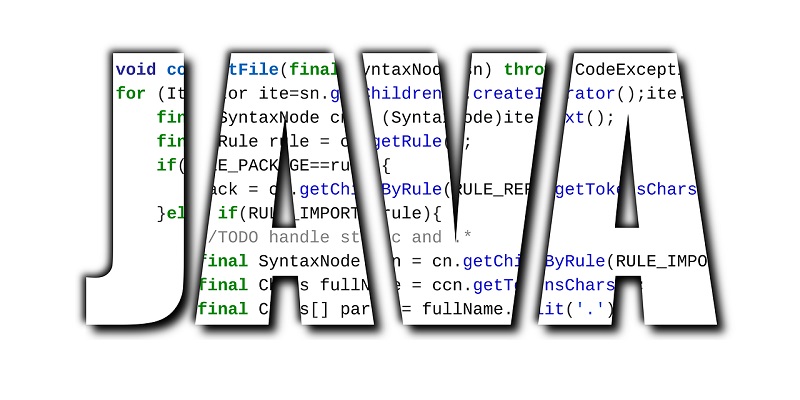In modern IT systems, the Java platform plays a crucial role in implementing a wide range of tools and components. From IDEs to web servers, the versatility of Java has enabled the development of robust and scalable applications. This article explores the significance and impact of various Java-based tools and technologies, highlighting their importance in today’s fast-paced digital landscape.
Java-based IDEs
Java Programming Integrated Development Environments (IDEs) have immensely contributed to the popularity and widespread adoption of Java. These IDEs, including IntelliJ IDEA, Eclipse, and NetBeans, are predominantly written in Java itself. They offer developers a comprehensive set of features, such as code auto-completion, debugging tools, and simplified project management. With their intuitive user interfaces and powerful capabilities, these IDEs have become the go-to choice for Java enthusiasts worldwide.
Jenkins – The Open-Source Continuous Integration Tool
Jenkins has emerged as one of the most renowned open-source tools for continuous integration (CI). Written in Java, Jenkins simplifies the development process by automating the integration of code changes from multiple developers into a shared repository. Its extensive plugin ecosystem enables seamless integration with various project management tools, version control systems, and testing frameworks. Jenkins has revolutionized the way development teams collaborate, ensuring efficient and error-free software delivery.
Apache Tomcat – The Java-Powered Web Server
Apache Tomcat, a highly popular web server, stands out as a reputable Java-based solution. Leveraging the capabilities of the Java platform, Tomcat provides a robust and scalable environment for hosting web applications. It excels in handling dynamic content, supporting JavaServer Pages (JSP) and Servlets. With its lightweight footprint and excellent performance, Apache Tomcat enables developers to deploy powerful and efficient web applications.
GraalVM – Harnessing Java’s Potential with Advanced Technologies
GraalVM pushes the boundaries of Java’s capabilities by providing a re-implementation of the Java Development Kit (JDK) with advanced technologies. One such technology is the Just-In-Time (JIT) compiler, which optimizes the execution of Java applications. Additionally, GraalVM introduces Native Image technology that allows developers to compile Java code into standalone native executables, significantly improving startup time and reducing memory footprint. This innovative Java virtual machine enhances both performance and compatibility for executing Java applications.
SonarQube – Ensuring Code Quality through Static Analysis
SonarQube, a standalone application written in Java, offers a comprehensive solution for static code analysis and code quality metrics. It helps developers identify and eliminate code smells, potential bugs, and security vulnerabilities early in the development lifecycle. SonarQube’s vast range of rules and customizable quality gates ensures adherence to coding standards and best practices. This valuable Java tool maximizes code quality, reduces technical debt, and facilitates efficient maintenance.
Keycloak – Secure Identity and Access Management in Java.
Keycloak, an open-source Identity and Access Management (IAM) system, has gained recognition for providing a secure and centralized solution for user authentication and authorization. Developed in Java, Keycloak offers a robust set of features, including Single Sign-On (SSO), role-based access control, and multi-factor authentication. Its seamless integration with various authentication protocols and frameworks makes it an indispensable tool for managing user access and improving security in Java applications.
The Elastic Stack – Java-Powered Log Management and Analysis
Formerly known as the ELK Stack, the Elastic Stack is a suite of Java-based tools that revolutionize log management and analysis. Comprising Elasticsearch, Logstash, and Kibana, this stack enables developers to collect, process, store, and visualize log data efficiently. Elasticsearch indexes and analyzes logs, Logstash facilitates log data processing and enrichment, while Kibana offers a user-friendly interface for log visualization and deep analysis. The Elastic Stack, powered by Java, empowers organizations to gain valuable insights from extensive log data and facilitates effective troubleshooting.
Java Runtime Environment (JRE) – Cross-platform Compatibility
One of Java’s significant advantages is its cross-platform compatibility. The Java Runtime Environment (JRE), which includes the Java Virtual Machine (JVM), allows Java applications to run on various operating systems such as Windows, Linux, and macOS seamlessly. This flexibility enables developers to write code once and run it anywhere, ensuring consistent performance and user experience across different platforms.
Integration of Frameworks and Libraries in Modern Java IDEs
Modern Java IDEs come equipped with convenient integration capabilities for popular frameworks and libraries. This integration simplifies programming by offering features such as code auto-import, intelligent code suggestion, and seamless build and deployment workflows. Whether it is Spring, Hibernate, or Apache Maven, Java IDEs streamline development processes, reducing time and effort for developers while enhancing code quality and maintainability.
The significance of the Java platform in modern IT systems cannot be overstated. Its versatility and widespread adoption have empowered the development of advanced tools, frameworks, and applications. From Java-based IDEs to web servers, continuous integration tools, IAM systems, and log management solutions, Java continues to drive innovation and support the evolving needs of the IT industry. As the digital landscape progresses, the Java platform stands as a pillar of strength, empowering developers to build robust and scalable solutions that shape the future of technology.

